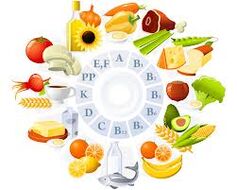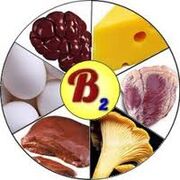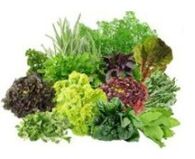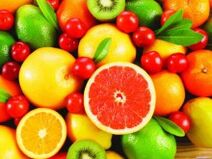
Everyone knows that vitamins are necessary for our body, but few people realize that these substances are necessary for the normal functioning of the brain. In addition, in order to preserve memory and thinking, certain vitamin groups are needed, which will be discussed below.
The most important B vitamins for memory
B vitamins are the most important for the nervous system. It can be said that the representatives of this group have the greatest influence on a person's memory and thoughts. They support the work of nerve cells, prevent early aging, and protect the brain from overload and stress. Low or complete deficiency of vitamin B can cause serious diseases of the nervous system and reduce people's memory and intelligence.
This group of vitamins includes the most important vitamins for the brain-B1, B2, B3, B5, B6, B9, B12.
Thiamine-Vitamin B1
Thiamine-Vitamin B1, known as the "vitamin of the soul", has the greatest impact on mental ability and memory. Due to lack, thoughts began to become confused and memory decreased. Vitamin B1 directly protects the nervous system and provides glucose for the brain.
has good nutrition, a person is not deficient in this vitamin, because it is contained in many products: oats and buckwheat (many in grains and husks), bran, peas, nuts, carrots, radishes, beansCategory, potato, spinach-supplier of thiamine.

It absorbs well, but it also degrades quickly, especially under the influence of alcohol, nicotine, sugar, and tannin tea.
Vitamin B1 deficiency causes symptoms:
- Memory loss;
- Muscle weakness;
- High physical and mental fatigue;
- Impaired coordination and gait; Numbness in limbs;
- Irritability;
- Feeling low;
- Tears and anxiety;
- Sleep disorders.
In severe cases, it may develop polyneuritis, quadriplegia and paralysis. The function of the cardiovascular system is also impaired, and changes in the gastrointestinal tract (fecal discomfort, constipation, nausea) can be observed.
Riboflavin-Vitamin B2
Vitamin B2-Riboflavin is an "energy vitamin", an accelerator of energy and metabolism in our body, including accelerating mental processes in the brain, participating in the synthesis of nerve cells and the work of neurotransmitters (transmitted through nerve impulses)Biologically active substances) in nerve cells). Due to lack of exercise, exercise brings fatigue instead of vitality and activity. Vitamin B2 can tolerate high temperatures very well, but will degrade rapidly under light.
Riboflavin is provided by meat and dairy products. These are liver, kidney, eggs, dairy products, yeast, tomatoes, cabbage, rose hips.

Vitamin B2 deficiency causes:
- headache;
- The speed of mental process decreases;
- lethargy;
- Loss of appetite;
- lose weight;
- Weaknesses.
In addition, skin changes-oral corner ulcers and cracks (cheilitis), dermatitis of the chest and facial skin; visual disturbance-photophobia, tearing due to inflammation of the cornea and eye mucosa; the synthesis of adrenal hormones is destroyed.
Niacin-Vitamin B3 or PP
Niacin (niacinamide, niacin)-vitamin B3- can be called "sedative vitamin". Vitamins are involved in the synthesis of enzymes and help extract energy from food. Without vitamins, the human body will feel fatigue, depression, depression, and insomnia. In addition, nicotinamide is directly involved in the biosynthesis of hormones (estrogen, progesterone, cortisol, testosterone, insulin, etc. ).
The vast majority of vitamin B3 is found in animal products: liver, eggs, kidneys, and lean meat; to a lesser extent, vegetable products are asparagus, parsley, carrots, garlic, peas, and pepper.
If it is not present in the food, pellagra will occur. The main symptoms of this condition are diarrhea (diarrhea), dermatitis (inflammation exposed on the surface of the skin), and dementia (acquired dementia).
Pantothenic acid-Vitamin B5

Vitamin B5-Pantothenic acid-this vitamin is found in many foods. This vitamin participates in fat metabolism, the transmission of nerve impulses, and triggers the mechanism of skin regeneration. It used to be thought that people should not be deficient in this vitamin.
However, since more than half of pantothenic acid is destroyed during storage and cooking, the following symptoms may occur:
- Limb numbness;
- Memory impairment;
- Sleep disorders;
- Headache;
- Abnormal feelings of hands and feet (tingling);
- Muscle pain.
To supplement vitamin B5 deficiency, you should include a variety of foods in your diet: meat, whole grains, hazelnuts, offal, and yeast. Large amounts are found in beans, fresh vegetables, shiitake mushrooms, and green tea.
Pyroxol-Vitamin B6
Vitamin B6-Pyridoxol-Participates in the synthesis of neurotransmitters including serotonin. Therefore, its nickname is "vitamin antidepressant".
The shortage can cause the following symptoms:
- lethargy;
- Irritable;
- Inhibition of thinking;
- Depressed;
- Anxiety.
Vitamin B6 is abundantly present in yeast, grains, beans, bananas, meat, fish, potatoes, cabbage, peppers, cherries and strawberries.
In addition, vitamin B6 also affects metabolism, cardiovascular system status, immunity, skin condition, hormone synthesis, absorption of hydrochloric acid and vitamin B12 in the stomach.
Folic acid-Vitamin B9

Folic acid-vitamin B9-participates in the synthesis of neurotransmitters, including dopamine and serotonin, that is to say, it affects the excitation and inhibition of the central nervous system. In addition, vitamin B9 participates in the exchange of protein, and the transfer of genetic information during fetal development is necessary for the formation of normal blood cells. Combined with vitamin B5, it can slow down the whitening of hair.
If it is missing, symptoms will appear:
- Memory impairment;
- Fatigue;
- Anxiety;
- Anemia;
- Insomnia and apathy.
A large amount of folic acid is found in fresh dark green vegetables (asparagus, spinach, lettuce), a large amount of folic acid is found in beans, wheat, and avocado, and a small amount is found in liver and egg yolk.
Cyanocobalamin-Vitamin B12
In nature, it is only synthesized by microorganisms, bacteria, and blue-green algae, and it mainly accumulates in the liver and kidney of animals. Neither plants nor animals can synthesize it. This "red vitamin" is contained in animal products: fish, liver, kidney, heart, oysters, seaweed and soybeans. Vitamin B12 can help our body change from waking mode to "sleep" mode to normalize mental processes, thereby converting short-term memory into long-term memory.
Lack of cyanocobalamin can cause:
- Chronic fatigue;
- Confusion;
- Illusion;
- ringing in the ear;
- Irritable;
- dizziness;
- lethargy;
- Memory loss;
- Visual impairment;
- Dementia;
- Depressed.
In addition to the B vitamins, there are other vitamins that can be used for memory and thinking.
Ascorbic acid-Vitamin C

Ascorbic acid is a very strong antioxidant that protects human cells from oxidation. Need to maintain the work of neurotransmitters in the brain.
Vitamin C is not synthesized in the human body. It has foods: rose hips, blackcurrants, sea buckthorn, parsley, sweet red peppers, citrus fruits, green onions, cabbage, horseradish, nettles, they are derived from animalsWhat is found in the product is only present in the liver.
Tocopherol Acetate-Vitamin E
The most important thing is that this fat-soluble vitamin is an excellent antioxidant that can remove toxins and free radicals in the brain tissue. It is included in the lipid composition of cell membranes. Foods rich in vitamin E can help protect the body from heart disease and atherosclerosis, thereby preventing the development of dementia.
For this, the diet must include unrefined oils (olive oil, soybeans, corn) as well as green beans, wheat and rye sprouts, beans, lettuce, lentils and oats.
Calciferol-Vitamin D
enters the human body together with food, and is synthesized in the skin under the influence of ultraviolet rays. Calcisterol is the "main conductor" of calcium metabolism in the body. In addition to having important effects on the formation of bones and teeth, and cell growth and development, vitamin D also needs to correctly transmit nerve impulses and muscle contractions.
Exist in large quantities in animal products: butter, fatty fish (herring, tuna, salmon, mackerel), fish oil, liver, egg yolk.
Bioflavonoids-Vitamin P

The main function of vitamin P is to reduce the permeability and fragility of capillaries. Together with ascorbic acid, it protects the human body from the damage of oxidation processes. This can prevent bleeding in the brain. Rich in vitamin P citrus fruits, rose hips, black chokeberries, green tea, apples.
In addition to a balanced diet and the use of vitamins, we must not forget other ways to prevent dementia. This is the only way to get good memory, vitality and optimism in old age.








































































